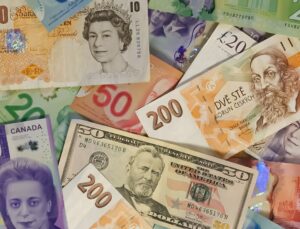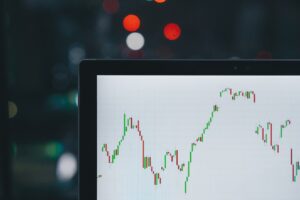Forex and options trading have become popular investment alternatives for traders worldwide. Both offer unique opportunities for investors to make profits, but the differences between the two can be significant. In this article, we’ll delve into the similarities and differences between forex and options trading, so you can make informed decisions when investing your money.
What is Forex Trading?
Forex, or foreign exchange, is the art of trading currencies from different countries. It is the largest financial market globally, with over $5 trillion traded every day. Forex trading involves buying and selling currencies in pairs, such as the US dollar and the Euro, with the aim of making a profit from the difference in their exchange rates.
The forex market operates 24 hours a day, five days a week, and it is accessible online. The market is open to anyone with an internet connection and a device, making it easy for people to start trading. Forex trading has a low entry cost and offered through brokers, who make money through spreads or commissions.
What is Options Trading?
Options trading involves buying and selling options contracts, which are financial instruments that give traders the right but not the obligation to buy or sell an underlying asset at a predetermined price and date. Options trading has become a popular way to trade derivatives, with the potential to make large profits in a short amount of time.
Options trading can be done in various asset classes, including stocks, commodities, and currencies. A trader can buy call or put options, depending on their view of the market. A call option gives the holder the right to buy an underlying asset, while a put option gives the holder the right to sell an underlying asset.
Options trading has a higher entry cost than forex trading, and it requires more knowledge and skills to be successful. The market is accessible through brokers, who charge commissions and fees for executing trades.
Similarities between Forex and Options Trading
Both forex and options trading involve speculating on the price movements of underlying assets. Traders in both markets use technical and fundamental analysis to identify trading opportunities. Both markets also offer leverage, which allows traders to trade with more money than they have in their accounts.
Both markets offer traders the ability to use stop-loss orders to limit their losses and take-profit orders to lock in profits. Both markets also have high liquidity, making it easy for traders to buy and sell assets quickly.
Differences between Forex and Options Trading
The primary difference between forex and options trading is the underlying asset. Forex trading involves currencies, while options trading can involve a range of assets, including stocks, commodities, and currencies. Forex trading is also a spot market, meaning trades are settled within two business days, while options trading is a derivatives market, meaning trades can be settled at a later date.
Another significant difference is the level of risk involved. Options trading is inherently riskier than forex trading, as options traders are dealing with derivatives rather than actual assets. Options trading also involves more complex strategies and requires more knowledge and skills to be successful.
The entry cost is also a significant difference between forex and options trading. Forex trading has a low entry cost, making it accessible to anyone with an internet connection and a device. Options trading, on the other hand, has a higher entry cost and requires more knowledge and skills to be successful.
Finally, both markets have different trading hours. Forex trading operates 24 hours a day, five days a week, while options trading operates during market hours, which vary depending on the asset class being traded.
Conclusion
Forex and options trading are two popular investment alternatives that offer unique opportunities to traders. While they share some similarities, they also have significant differences that traders need to understand before investing their money. Forex trading involves currencies, has a low entry cost, and is a spot market. Options trading involves derivatives, has a higher entry cost, and requires more knowledge and skills to be successful. Understanding these differences and similarities is crucial when deciding which market to invest in.





